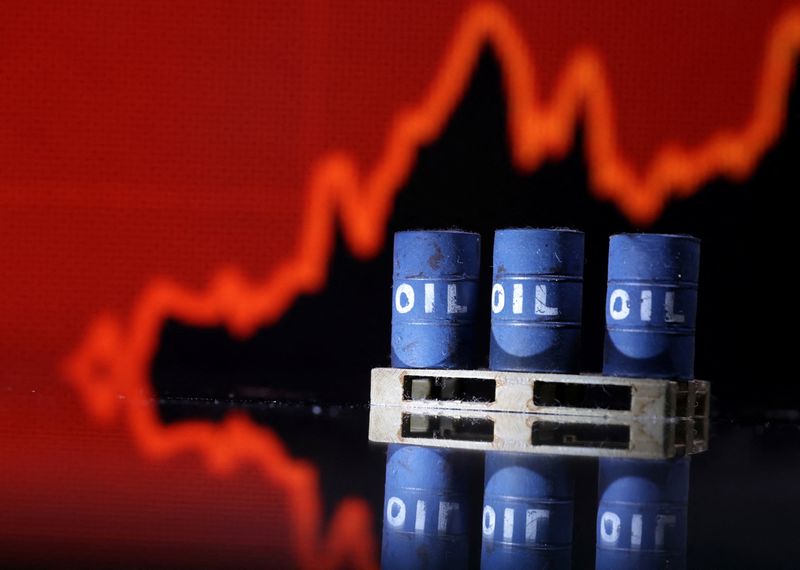Investing.com -- Oil market fundamentals remain bearish despite geopolitical risks, as per analysts at UBS in anote dated Monday.
While the ongoing conflict in the Middle East initially raised concerns about potential disruptions to oil supply, the direct risks have since diminished.
This easing of geopolitical tensions, combined with softer global demand, particularly from China, has kept the overall outlook for oil prices on the downside.
“For 2025, we continue to see the market just about balanced, but assuming no unwind of the OPEC+ production cuts,” the analysts said.
One of the major factors contributing to the bearish outlook is the weaker-than-expected demand from China, a critical driver of global oil consumption.
UBS has downgraded its 2024 global oil demand growth forecast by 0.1 million barrels per day to 0.9 million barrels per day.
Although China’s government introduced a stimulus package aimed at boosting economic growth, the structural shift in fuel consumption, including rising electric vehicle adoption, is expected to limit the impact of this package on oil demand.
For 2025, UBS anticipates marginal improvement, projecting demand growth of 1.1 million barrels per day.
On the supply side, the outlook remains mixed. Non-OPEC+ countries are expected to maintain robust production levels, particularly in the United States.
However, US production is facing headwinds due to stagnant rig activity, which has seen no meaningful increase in recent months. UBS has revised down its US crude output forecast, citing lower rig counts and reduced drilling activity.
In 2025, US crude production growth is expected to slow further, increasing by only 0.4 million barrels per day, down from earlier forecasts. This marks a continuation of the bearish trend that has emerged over the past few months.
OPEC+ production levels have also seen cuts, but UBS notes that compliance with production targets remains uneven among key members.
Iraq, for example, reduced its output in September, though it still produced above its agreed target. UBS does not foresee a return of OPEC+ supply to the market until at least 2027, as weak demand and non-OPEC+ supply growth continue to absorb any potential supply increases.
